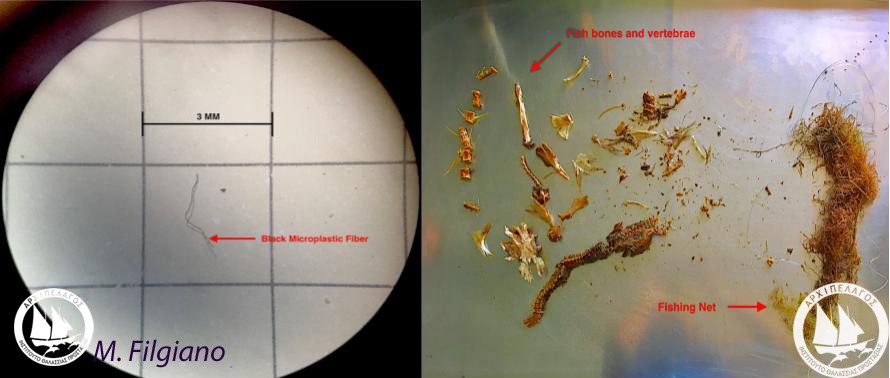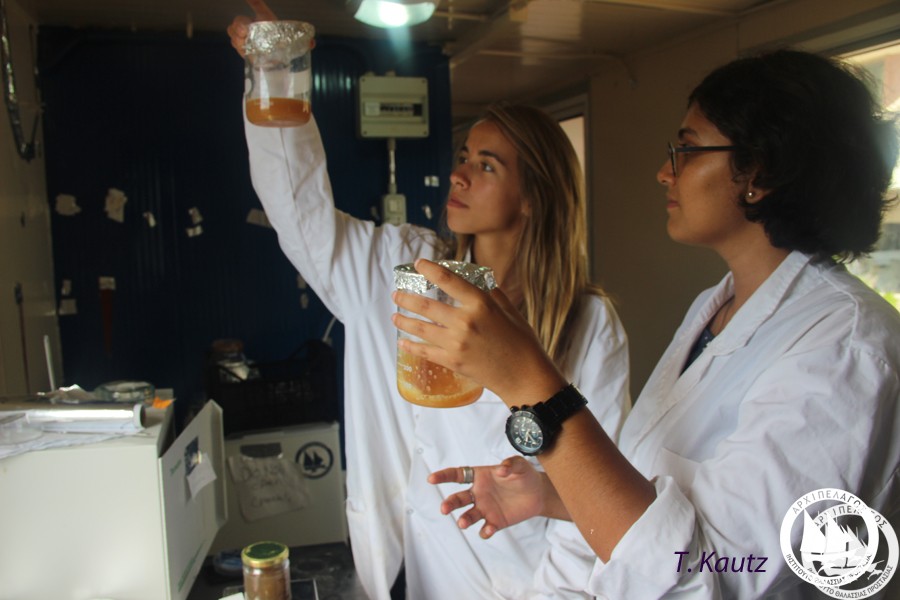With the worldwide increase in the production of plastics over the last century, in combination with the overall lack of plastic waste management, the impact of plastics on marine environments has become a critical concern. Microplastics develop from the degradation of larger plastics, such as plastic bottles, bags, and many other improperly discarded objects, that eventually end up in the environment. However, they may also be manufactured as microbeads in certain cosmetic products, which are disposed of in the sea through waste water systems. The danger of plastic fragments and microplastic particles, arises from their long-term persistence in the environment and their absorbance of toxic compounds, such as persistent organic pollutants (POP) and metals. Analysis and quantification of microplastics present in marine biota has become a vital method to assess the impact of plastic pollution in marine environments and understand its trajectory through increasing tropic levels.

To our knowledge, no study has been conducted on the presence of microplastics in dolphin digestive systems. As top predators, dolphins prey on fish, squid, and other cephalopods and have the potential to provide critical information on the environmental health of our oceans and seas.
The Microplastics Team of Archipelagos Institute has been working on the dissection of eight dolphin species (5 Tursiops truncatus, 2 Delphinus delphis, 1 Stenella coeruleoalba) found in strandings around Samos Island, Greece. Parts of the gastrointestinal tracts of each dolphin have been dissected and broken down using a strong basic solution of 10% KOH.
So far, over 700 microplastic particles have been observed in only a portion of the digestive tracts of 7 out of 8 dolphins.
In other words, microplastic particles have been found in each species, with no organs found clean so far.
Our aim is quantify the full of extent of microplastics within each dolphin to inform the public on what we are throwing into our seas and how these pollutants make their way back up the food chain and to us.
Marcia Filgiano, Queens University, Canada


